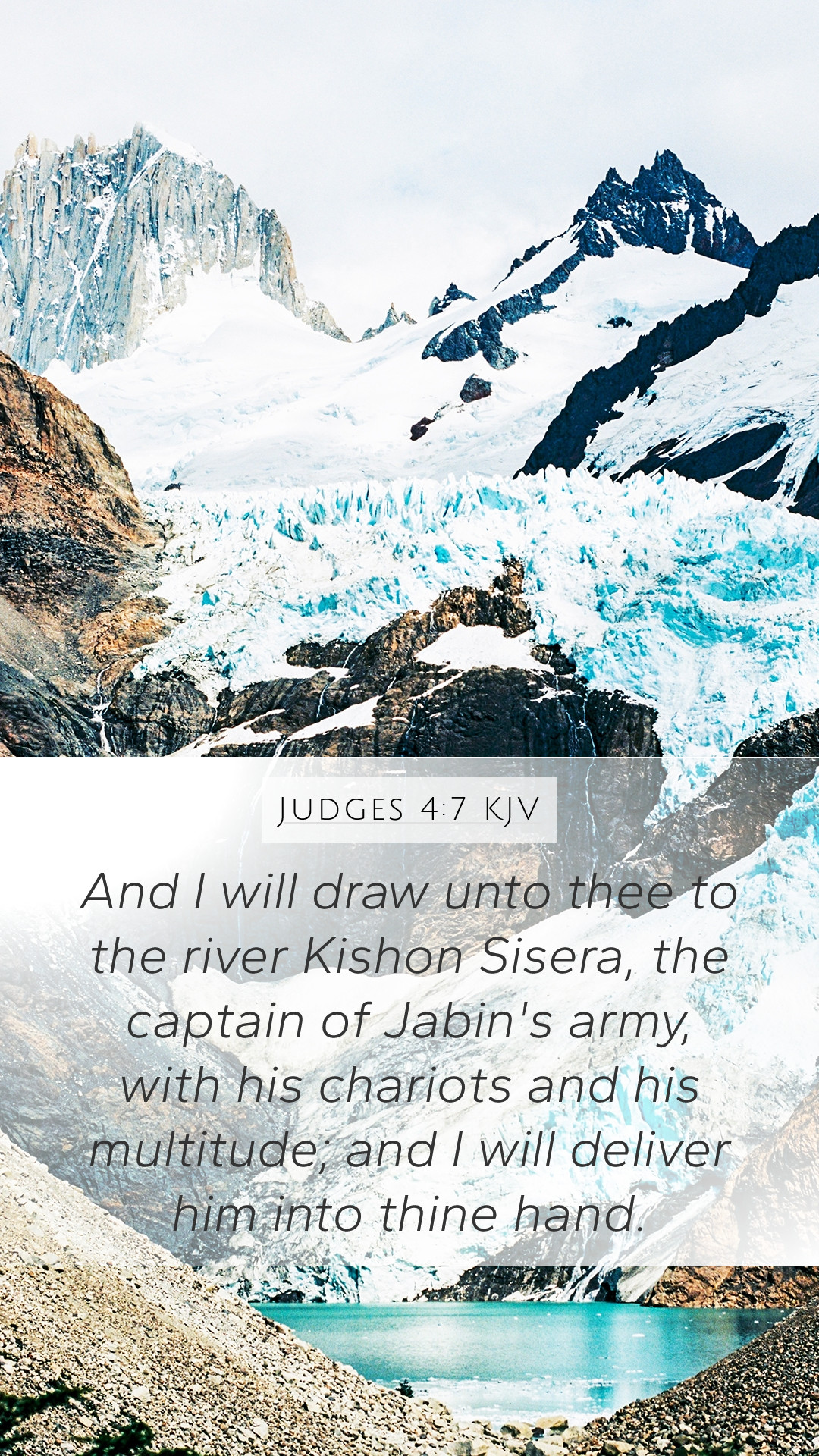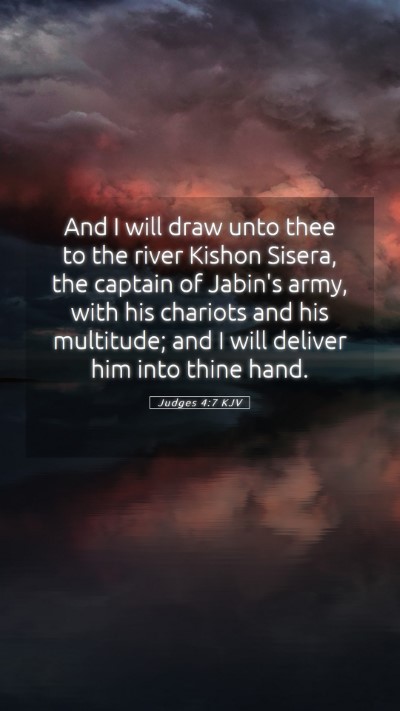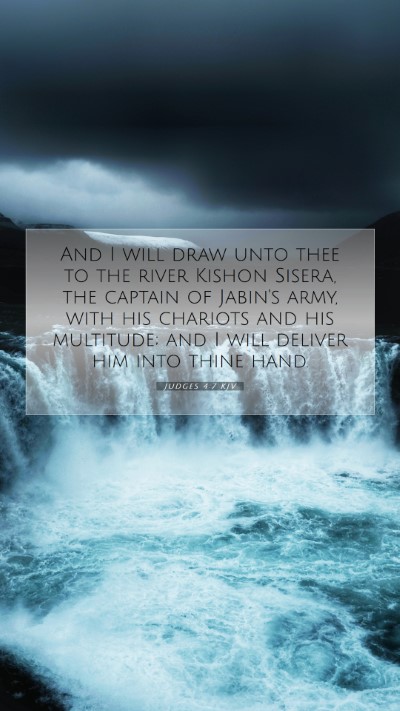Old Testament
Genesis Exodus Leviticus Numbers Deuteronomy Joshua Judges Ruth 1 Samuel 2 Samuel 1 Kings 2 Kings 1 Chronicles 2 Chronicles Ezra Nehemiah Esther Job Psalms Proverbs Ecclesiastes Song of Solomon Isaiah Jeremiah Lamentations Ezekiel Daniel Hosea Joel Amos Obadiah Jonah Micah Nahum Habakkuk Zephaniah Haggai Zechariah MalachiJudges 4:7 Meaning
What is the meaning of Judges 4:7?
And I will draw unto thee to the river Kishon Sisera, the captain of Jabin's army, with his chariots and his multitude; and I will deliver him into thine hand.
Judges 4:7 Bible Verse Meaning
Bible Verse Explanation: Judges 4:7
Judges 4:7 states, "And I will draw unto thee to the river Kishon Sisera, the captain of Jabin’s army, with his chariots and his multitude; and I will deliver him into thine hand." This verse showcases God's intervention and strategic direction in the battles faced by His people, specifically in the context of Deborah's military command.
Contextual Background
The Book of Judges describes the period when Israel was governed by judges before the establishment of kings. Deborah, a prophetess and judge, leads Israel during a time of oppression. The historical context involves the Israelites suffering under Jabin's rule, who had a powerful army led by Sisera. This verse marks a pivotal moment where God reveals His plan to liberate Israel.
Insights from Public Domain Commentaries
Matthew Henry's Commentary
Divine Command: Henry emphasizes that God orchestrates events to fulfill His promises to His people. He notes the significance of God's directive to draw Sisera to a specific location, the river Kishon, which was strategically chosen for the approaching battle. This showcases God's omnipotence and ability to control circumstances.
Encouragement for Leadership: Deborah's role as a female leader is highlighted, and the encouragement she receives from God serves to strengthen her position among the people. Her faithfulness is integral to Israel's victory, suggesting that God empowers those He chooses for His purposes.
Albert Barnes' Commentary
God's Assurance of Victory: Barnes discusses how the promise of deliverance is a test of faith for Barak. Despite the overwhelming odds, God's certainty of victory gives Barak the courage to proceed. The verse emphasizes that success in battles comes from divine assistance rather than human strength.
Significance of Geographic Context: The mention of the river Kishon is crucial; it played a role in the battle dynamics. The flooding of the river at that time historically led to the disadvantage of Sisera’s chariots, illustrating God’s use of environmental factors in His plans.
Adam Clarke's Commentary
Symbolic Meaning: Clarke interprets the characters involved symbolically, with Sisera representing evil forces opposing God’s chosen people. The confrontation signifies the spiritual battle faced by the faithful. The act of drawing Sisera is seen as God pulling evil into confrontation with His ordained justice.
Path to Redemption: Clarke also highlights the redemptive aspect of God’s actions—drawing Sisera into defeat leads to liberation for Israel, symbolizing the ultimate spiritual liberation through divine intervention.
Applying Judges 4:7 to Daily Life
This verse teaches the importance of reliance on God's guidance and strategies in facing our challenges. Just as Barak was assured of God’s presence, modern believers can find confidence in God's promises during their personal struggles.
Related Bible Cross References
- Exodus 14:14: "The Lord will fight for you, and you have only to be silent."
- 1 Samuel 17:47: "For the battle is the Lord's, and he will give you into our hand."
- Psalm 44:5: "Through you we push down our foes; through your name we tread down those who rise up against us."
Conclusion
Judges 4:7 exemplifies a moment of divine promise and assurance, important for understanding God's ongoing relationship with His people. The explanations and interpretations provided by well-regarded commentaries deepen the understanding of this passage, revealing both historical and spiritual significance. These insights can aid individuals in their Bible study groups or personal studies as they seek to grasp the meaning of Bible verses within their spiritual journey.


